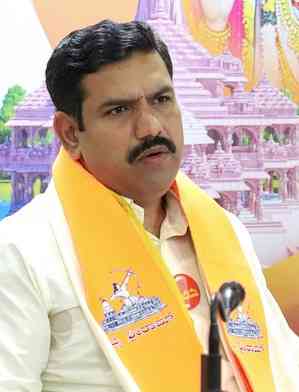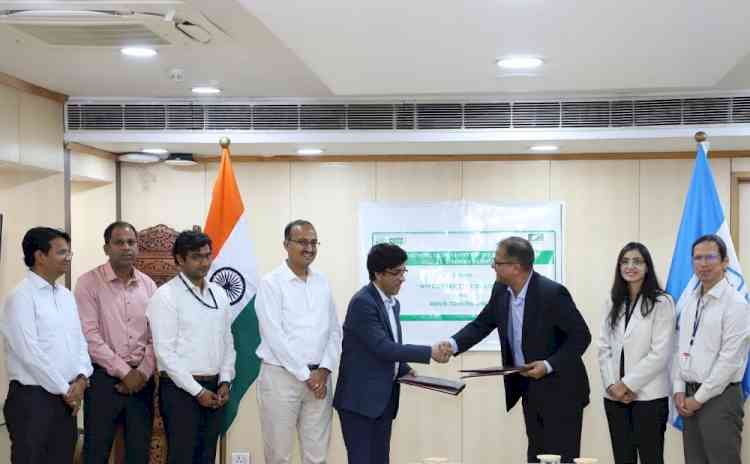Prof Dharmanand Sharma dives series of two lectures
Author(s): City Air NewsProf Dharmanand Sharma. Chandigarh, November 22, 2018: Eminent philosopher, Sanskrit scholar and teacher, Prof Dharmanand Sharma gave a series of two lectures on 21st and 22nd November at Interdisciplinary Centre...


Prof Dharmanand Sharma.
Chandigarh, November 22, 2018: Eminent philosopher, Sanskrit scholar and teacher, Prof Dharmanand Sharma gave a series of two lectures on 21st and 22nd November at Interdisciplinary Centre for Swami Vivekananda Studies. In his first lecture on “Semantic History of Vedanta and its implications for the study of Indian Philosophy”,Prof Sharma began by explaining the meaning of Veda and later went on to elaborate on the contents of the four Vedas. In the past hundred years, Western scholars have done a lot more work on the Vedas than Indian scholars. No doubt they did a great job of research but they understood the Vedas through their own perspective. Texts can be interpreted according to your own worldview. To understand the Vedic texts, mere knowledge of Sanskrit words and meanings is not enough. You have to take the help of grammar and Nirukta, a text on etymology of Vedic words. Even this is not enough. Vedas were written by rishis who wrote down their experience of the cosmos at a heightened level of consciousness. Until the readers are able to raise their consciousness to that level it becomes very difficult to understand the meaning of Vedic mantras. However, to reach that level, you do not have to be educated in the worldly sense, or be an intellect. Ramakrishna Paramahamsa and Ramana Maharshi could understand the Vedas because they had an elevated level of consciousness.
Prof Sharma said that just as oil is present in the sesame (til) seed, Vedanta is present in the Vedas, It is the very essence of the Vedas. The Vedic literature can be broadly divided into Karmakanda and Gyankanda also known as Vedanta. Karmakanda is mainly concerned with techniques of achieving worldly possessions and success while the Gyankanda is about self-knowledge and liberation. Vedanta is the essence of the Vedas because no matter how much you achieve in the world, you can still be miserable. Even a rich man has problems of disease, old age and death. So worldly success does not guarantee inner-happiness. Vedanta teaches you how to be free of misery while still going on with worldly activities.
This was elaborated in detail in today’s lecture on “Commentaries on Vedanta”. Prof. Sharma outlined the varieties of perspectives which led to different classifications falling within Vedanta. He highlighted how Ramkrishan Paramhans could experience the synthesis in all these streams of thoughts. He referred to the works of six scholars.The lecture was well-attended by scholars and students. Prof. Nandita Singh, Coordinator, ICSVS; Dean International Students has organised these twin lectures.

 cityairnews
cityairnews 















